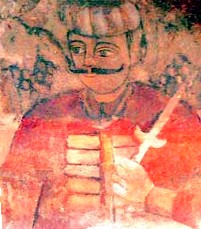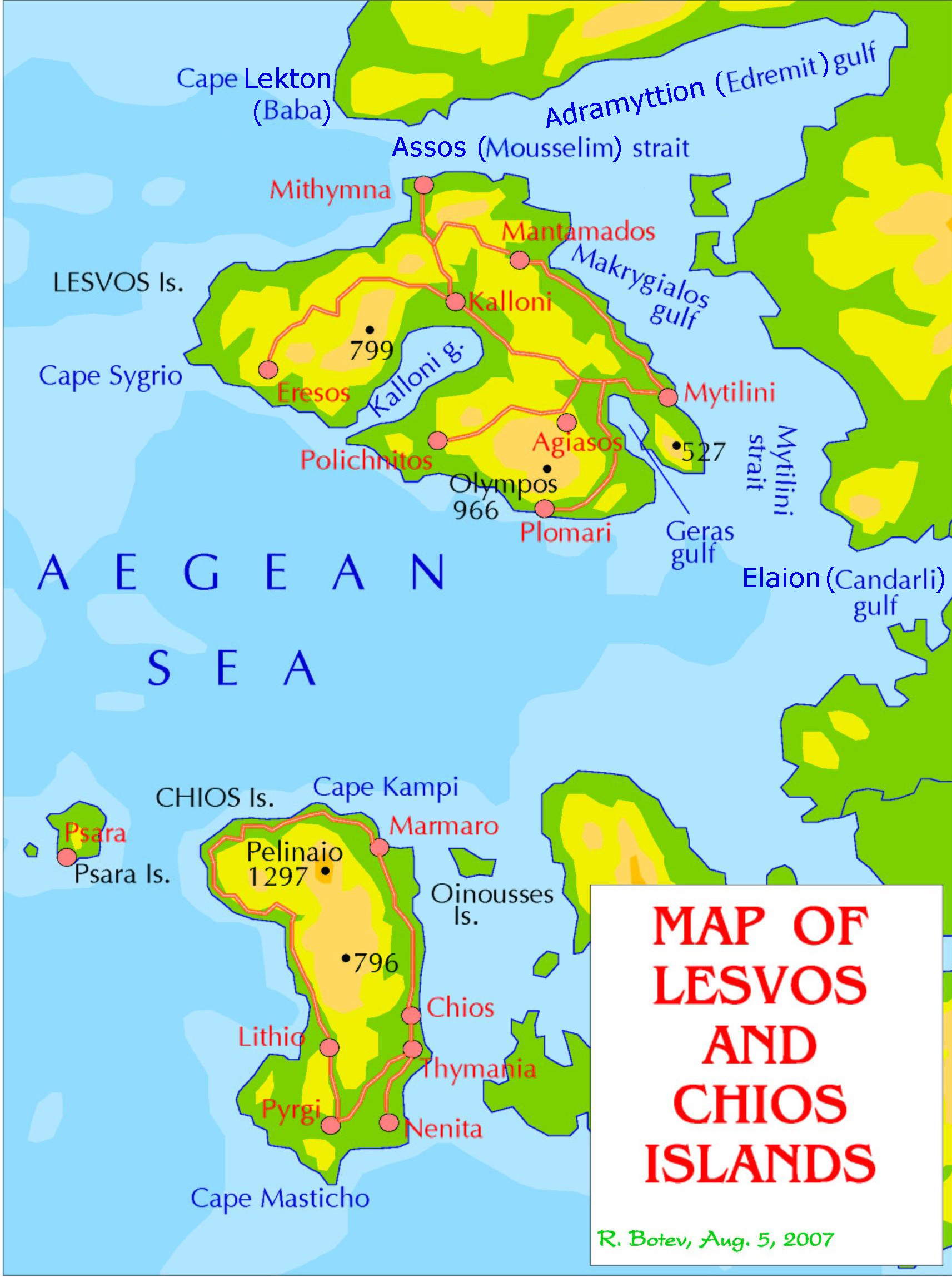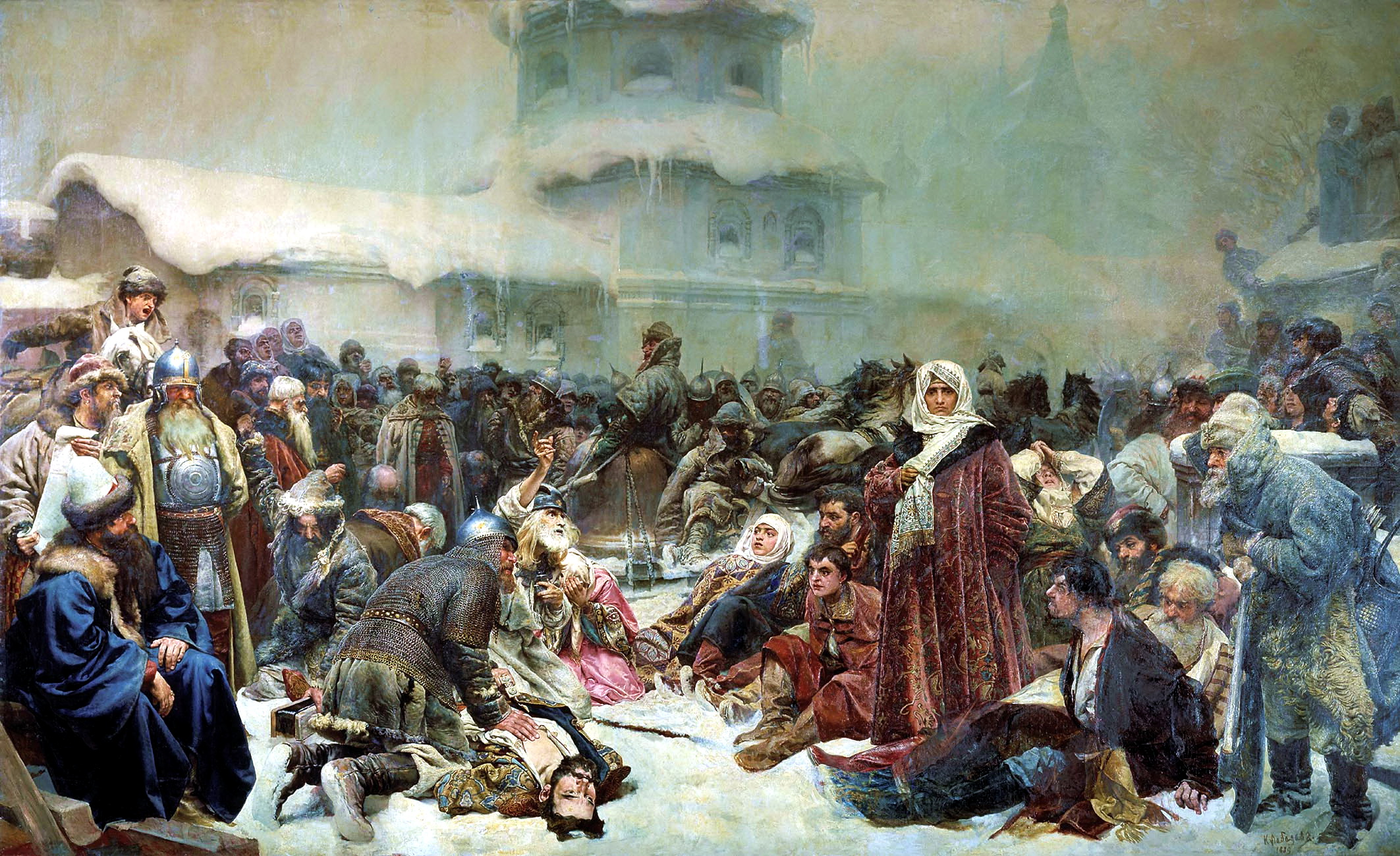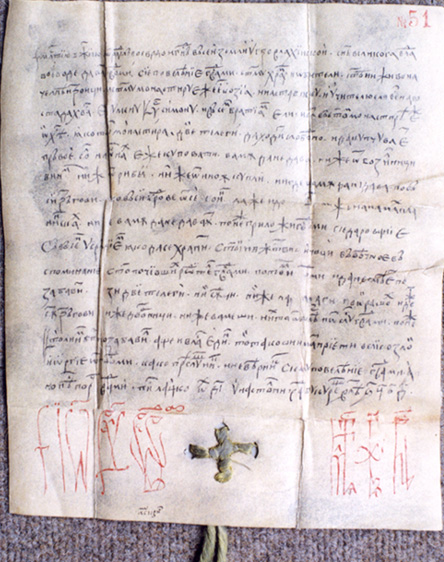|
1462
Year 1462 ( MCDLXII) was a common year starting on Friday (link will display the full calendar) of the Julian calendar. Events January–December * March 27 – Ivan III of Russia becomes the ruler of Russia, following the death of his father, Vasili. * June 17 – The Night Attack: Vlad III Dracula attempts to assassinate Mehmed II, forcing him to retreat from Wallachia. * June 30 – Battle of Seckenheim: Frederick I, Elector Palatine is victorious over four other opponents. * July 22 – The first siege of Chilia by Stephen the Great fails, and he is seriously wounded. * September 17 – Thirteen Years' War – Battle of Świecino (Battle of Żarnowiec): The Kingdom of Poland defeats the Teutonic Order. * September – Siege of Mytilene: Mehmed II captures the town of Mytilene, thus conquering the island of Lesbos. * December – After Radu III the Fair takes over the throne in Wallachia, Vlad III Dracula seeks help in Transylv ... [...More Info...] [...Related Items...] OR: [Wikipedia] [Google] [Baidu] |
Vlad III Dracula
Vlad III, commonly known as Vlad the Impaler ( ro, Vlad Țepeș ) or Vlad Dracula (; ro, Vlad Drăculea ; 1428/311476/77), was Voivode of Wallachia three times between 1448 and his death in 1476/77. He is often considered one of the most important rulers in Wallachian history and a national hero of Romania. He was the second son of Vlad Dracul, who became the ruler of Wallachia in 1436. Vlad and his younger brother, Radu, were held as hostages in the Ottoman Empire in 1442 to secure their father's loyalty. Vlad's eldest brother Mircea and their father were murdered after John Hunyadi, regent-governor of Hungary, invaded Wallachia in 1447. Hunyadi installed Vlad's second cousin, VladislavII, as the new voivode. Hunyadi launched a military campaign against the Ottomans in the autumn of 1448, and Vladislav accompanied him. Vlad broke into Wallachia with Ottoman support in October, but Vladislav returned and Vlad sought refuge in the Ottoman Empire before the end of the year. ... [...More Info...] [...Related Items...] OR: [Wikipedia] [Google] [Baidu] |
Siege Of Mytilene (1462)
The Ottoman conquest of Lesbos took place in September 1462. The Ottoman Empire, under Sultan Mehmed II, laid siege to the island's capital, Mytilene. After its surrender, the other forts of the island surrendered as well. The event put an end to the semi-independent Genoese lordship that the Gattilusio family had established in the northeastern Aegean since the mid-14th century, and heralded the beginning of the First Ottoman–Venetian War in the following year. In the mid-14th century, the Gattilusio family had established an autonomous lordship under Byzantine suzerainty on Lesbos. By 1453, the Gattilusio domains had come to include most of the islands in the northeastern Aegean. In the aftermath of the fall of the Byzantine Empire in 1453, however, Mehmed II began reducing the Gattilusio holdings. By the end of 1456, only Lesbos remained in Gattilusio hands, in exchange for an annual tribute to the Sultan. In 1458 Niccolò Gattilusio seized control of the island from his bro ... [...More Info...] [...Related Items...] OR: [Wikipedia] [Google] [Baidu] |
Battle Of Seckenheim
The Battle of Seckenheim (June 1462) saw the army of the Electoral Palatinate led by Frederick I, Elector Palatine and his ally Dieter von Isenburg face an invading army led by Charles I, Margrave of Baden-Baden, Ulrich V, Count of Württemberg, Louis I, Count Palatine of Zweibrücken, and George of Baden, the Bishop of Metz. Without warning, Frederick suddenly struck at the invaders, trapping them in the fork of two major rivers. Though about 300 knights cut their way out, causing many non-combatant casualties, the Palatine forces were victorious. Frederick captured three of the enemy leaders and wrung ransoms and territorial concessions from them. Seckenheim is now part of the city of Mannheim in the state of Baden-Württemberg, Germany. The combat occurred during the Mainz Feud (''Mainzer Stiftsfehde''), part of the larger Bavarian War (1459–63). Background On 4 July 1460, Frederick I, Elector Palatine defeated Dieter von Isenburg in the Battle of Pfeddersheim. But in the fall ... [...More Info...] [...Related Items...] OR: [Wikipedia] [Google] [Baidu] |
Stephen The Great
Stephen III of Moldavia, most commonly known as Stephen the Great ( ro, Ștefan cel Mare; ; died on 2 July 1504), was Voivode (or Prince) of Moldavia from 1457 to 1504. He was the son of and co-ruler with Bogdan II, who was murdered in 1451 in a conspiracy organized by his brother and Stephen's uncle Peter III Aaron, who took the throne. Stephen fled to Hungary, and later to Wallachia; with the support of Vlad III Țepeș, Voivode of Wallachia, he returned to Moldavia, forcing Aaron to seek refuge in Poland in the summer of 1457. Teoctist I, Metropolitan of Moldavia, anointed Stephen prince. He attacked Poland and prevented Casimir IV Jagiellon, King of Poland, from supporting Peter Aaron, but eventually acknowledged Casimir's suzerainty in 1459. Stephen decided to recapture Chilia (now Kiliia in Ukraine), an important port on the Danube, which brought him into conflict with Hungary and Wallachia. He besieged the town during the Ottoman invasion of Wallachia in 1462, but w ... [...More Info...] [...Related Items...] OR: [Wikipedia] [Google] [Baidu] |
Battle Of Świecino
The Battle of Świecino (named for the village of Świecino, near Żarnowiec Lake, northern Poland) also called the Battle of Żarnowiec or in German Die Schlacht bei Schwetz, took place on September 17, 1462 during the Thirteen Years' War. The Polish forces, commanded by Piotr Dunin and consisting of some 2,000 mercenaries and Poles, decisively defeated the 2,700-man army of the Teutonic Knights, commanded by Fritz Raweneck and Commander of the Order Kaspar Nostitz (''Nostyc''). Auxiliary forces sent by Duke Eric II of Pomerania, temporary ally of the Teutonic Knights, did not enter the battle. Polish forces The Polish forces consisted mostly of the mercenaries hired by the Polish king, Casimir IV the Jagiellon and the city of Danzig (Gdańsk). This army included 1,000 cavalry, of which 112 were heavy cavalry, and another 1,000 of infantry. 1,000 cavalry and 400 infantry were mercenaries hired by the Polish king, while the rest were units from Danzig (Gdańsk). Teutonic ... [...More Info...] [...Related Items...] OR: [Wikipedia] [Google] [Baidu] |
Ivan III Of Russia
Ivan III Vasilyevich (russian: Иван III Васильевич; 22 January 1440 – 27 October 1505), also known as Ivan the Great, was a Grand Prince of Moscow and Grand Prince of all Rus'. Ivan served as the co-ruler and regent for his blind father Vasily II from the mid-1450s before he officially ascended the throne in 1462. He multiplied the territory of his state through war and through the seizure of lands from his dynastic relatives, ended the dominance of the Tatars over Russia, renovated the Moscow Kremlin, introduced a new legal codex and laid the foundations of the Russian state. His 1480 victory over the Great Horde is cited as the restoration of Russian independence, 240 years after the fall of Kiev in the Mongol invasion of Kievan Rus'. Ivan was the first Russian ruler to style himself "tsar", albeit not as an official title. Through marriage to Sofia Paleologue, he made the double-headed eagle Russia's coat of arms and adopted the idea of Moscow as Third Ro ... [...More Info...] [...Related Items...] OR: [Wikipedia] [Google] [Baidu] |
Vasili II Of Russia
Vasily Vasiliyevich (russian: Василий Васильевич; 10 March 141527 March 1462), also known as Vasily II the Blind (Василий II Тёмный), was the Grand Prince of Moscow whose long reign (1425–1462) was plagued by the greatest civil war of Old Russian history. At one point, Vasily was captured and blinded by his opponents, yet eventually managed to reclaim the throne. Due to his disability, he made his son, Ivan III the Great, his co-ruler in his late years. First ten years of internecine struggle Vasily II was the youngest son of Vasily I of Moscow by Sophia of Lithuania, the only daughter of Vytautas the Great, and the only son to survive his father (his elder brother Ivan died in 1417 at the age of 22). On his father's death Vasily II was proclaimed Grand Duke at the age of 10. His mother acted as a regent. His uncle, Yuri of Zvenigorod (Prince of Galich-Mersky), and his two sons, Vasily the Cross-Eyed and Dmitry Shemyaka, seized on the opportunity ... [...More Info...] [...Related Items...] OR: [Wikipedia] [Google] [Baidu] |
Mainz
Mainz () is the capital and largest city of Rhineland-Palatinate, Germany. Mainz is on the left bank of the Rhine, opposite to the place that the Main (river), Main joins the Rhine. Downstream of the confluence, the Rhine flows to the north-west, with Mainz on the left bank, and Wiesbaden, the capital of the neighbouring state Hesse, on the right bank. Mainz is an independent city with a population of 218,578 (as of 2019) and forms part of the Frankfurt Rhine-Main, Frankfurt Rhine-Main Metropolitan Region. Mainz was founded by the Roman Empire, Romans in the 1st century BC as a military fortress on the northernmost frontier of the empire and provincial capital of Germania Superior. Mainz became an important city in the 8th century AD as part of the Holy Roman Empire, capital of the Electorate of Mainz and seat of the Elector of Mainz, Archbishop-Elector of Mainz, the Primate (bishop), Primate of Germany. Mainz is famous as the birthplace of Johannes Gutenberg, the inventor of ... [...More Info...] [...Related Items...] OR: [Wikipedia] [Google] [Baidu] |
Radu Cel Frumos
Radu III of Wallachia, commonly called Radu the Handsome or Radu the Fair ( ro, Radu cel Frumos; tr, Radu Bey; 1437/1439 — January 1475), was the younger brother of Vlad III and Prince of the principality of Wallachia. They were both sons of Vlad II Dracul and his wife, Princess Cneajna of Moldavia. In addition to Vlad III, Radu also had two older siblings, Mircea II and Vlad Călugărul, both of whom would also briefly rule Wallachia. Life with the Ottomans In 1436, Vlad II Dracul ascended to the throne of Wallachia. He was ousted in 1442 by rival factions in league with Hungary, but secured Ottoman support for his return by agreeing to pay tribute to the Sultan and also send his two legitimate sons, Vlad III and Radu, to the Ottoman court, to serve as hostages of his loyalty. The boys were taken to the various garrisons at Edirne. Radu became an intimate friend and a favorite of the sultan's son, Mehmed II. According to Latin translation of Byzantine chronicles Radu was S ... [...More Info...] [...Related Items...] OR: [Wikipedia] [Google] [Baidu] |
Lesbos
Lesbos or Lesvos ( el, Λέσβος, Lésvos ) is a Greek island located in the northeastern Aegean Sea. It has an area of with approximately of coastline, making it the third largest island in Greece. It is separated from Anatolia, Asia Minor by the narrow Mytilini Strait. On the southeastern coast lies the island's capital and largest city, Mytilene, whose name is also used as a moniker for the island. The regional units of Greece, regional unit of Lesbos, with the seat in Mytilene, comprises the islands of Lesbos, Chios, Ikaria, Lemnos, and Samos. Mytilene is also the capital of the larger North Aegean region. The population of the island is 83,068, a third of whom live in the capital, while the remainder is distributed in small towns and villages. The largest are Plomari, Kalloni, the Gera Villages, Agiassos, Eresos, and Molyvos (the ancient Mythimna). According to later Greek writers, Mytilene was founded in the 11th century BC by the family Penthilidae, who arrived from T ... [...More Info...] [...Related Items...] OR: [Wikipedia] [Google] [Baidu] |
Mehmed II
Mehmed II ( ota, محمد ثانى, translit=Meḥmed-i s̱ānī; tr, II. Mehmed, ; 30 March 14323 May 1481), commonly known as Mehmed the Conqueror ( ota, ابو الفتح, Ebū'l-fetḥ, lit=the Father of Conquest, links=no; tr, Fâtih Sultan Mehmed, links=no), was an Ottoman sultan who ruled from August 1444 to September 1446, and then later from February 1451 to May 1481. In Mehmed II's first reign, he defeated the crusade led by John Hunyadi after the Hungarian incursions into his country broke the conditions of the truce Peace of Szeged. When Mehmed II ascended the throne again in 1451, he strengthened the Ottoman navy and made preparations to attack Constantinople. At the age of 21, he Fall of Constantinople, conquered Constantinople (modern-day Istanbul) and brought an end to the Byzantine Empire. After the conquest Mehmed claimed the title Caesar (title), Caesar of the Roman Empire ( ota, قیصر روم, Qayser-i Rûm, links=no), based on the fact that Constanti ... [...More Info...] [...Related Items...] OR: [Wikipedia] [Google] [Baidu] |
Mathias Corvinus
Matthias Corvinus, also called Matthias I ( hu, Hunyadi Mátyás, ro, Matia/Matei Corvin, hr, Matija/Matijaš Korvin, sk, Matej Korvín, cz, Matyáš Korvín; ), was King of Hungary and Croatia from 1458 to 1490. After conducting several military campaigns, he was elected King of Bohemia in 1469 and adopted the title Duke of Austria in 1487. He was the son of John Hunyadi, Regent of Hungary, who died in 1456. In 1457, Matthias was imprisoned along with his older brother, Ladislaus Hunyadi, on the orders of King Ladislaus the Posthumous. Ladislaus Hunyadi was executed, causing a rebellion that forced King Ladislaus to flee Hungary. After the King died unexpectedly, Matthias's uncle Michael Szilágyi persuaded the Estates to unanimously proclaim the 14-year-old Matthias as king on 24 January 1458. He began his rule under his uncle's guardianship, but he took effective control of government within two weeks. As king, Matthias waged wars against the Czech mercenaries who domin ... [...More Info...] [...Related Items...] OR: [Wikipedia] [Google] [Baidu] |








